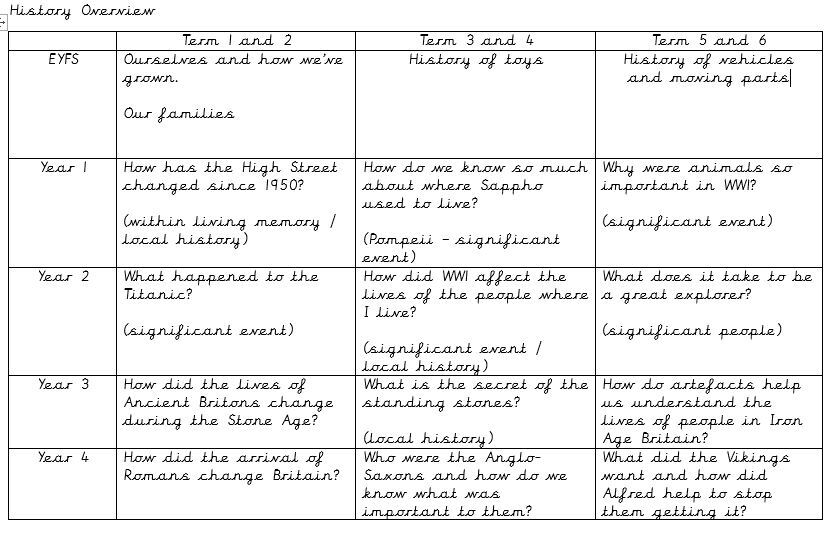History
Vision
Our intent is to teach key transferable skills through an enquiry-led and engaging History curriculum which will build rounded individuals who can adapt to the requirements of jobs which do not yet exist. Children are offered the chance to use historical studies as a vehicle to engage in active problem solving and are encouraged to develop self-reliance (in both asking and answering questions) before arriving at their own conclusions. Children will learn to present these through writing which draws upon and explains the process that they have employed. When a skills based curriculum is effectively employed in History, it will lead to further cross curricular competencies where learners see how skills can be applied in a number of situations.
Children will be able to categorise and define the key skills that they are learning to use allowing a greater depth of understanding. Significant terminology will still be taught alongside a focus on chronology as critical commentators using set key skills will still anchor their conclusions in a historical context.
Coverage
In history, we implement a curriculum that has enquiry-based teaching and learning at its heart. Children are specifically taught key skills and processes but after initial and explicit exploration of these skills, they are afforded the opportunities to discover these processes themselves. This is done through the use of key questions augmented with many visual, concrete, written and abstract sources which allow children to talk through their own discoveries and notions until arriving at accurate conclusions which are guided by their teachers. Where possible, our curriculum references a clear chronological narrative which the children follow as they move through Key Stage 2. The study of consecutive time periods allows context for the study of change, cause and effect. Our history curriculum offers children the opportunity to examine cultural, economic, military, political, religious and social aspects of various world events through the use of different types of stimulus (objects, written, recorded etc). The end goal of each history lesson is to teach key transferable skills which include devising and answering valid questions about change, cause, similarity, difference and significance, interpreting information, organising and communicating this information, understanding how knowledge is constructed and using appropriate terminology. Each individual history study is based around enquiry-based learning which is an active, questioning approach to learning and encourages children to employ higher order thinking where previous understanding and knowledge is applied to new problems. The National Curriculum asks that pupils are given the opportunity to ask perceptive questions, think critically, weigh evidence, sift arguments, and develop perspective and judgement and our aim is to fulfil this requirement through specific enquiry-based teaching and learning.


Evidence
Learners take an active, questioning approach when becoming historians at Bemerton St John. We are hopeful that the impact of this enquiry led learning will be that our children leave the school with an understanding of how to devise and answer valid questions about change, cause, similarity, difference and significance. Children will understand how to organise and communicate information (using appropriate terminology) and do so using a range of sources. Children will be apt at using these sources to create evidence to back up historical findings. Evidence of the children’s use of the transferable skills as they move through the school will form the basis of assessment in this subject and every child is expected to make progress which is at least equivalent with their progress in other subjects. Progress in these key skills must be evident between the year groups and a single history book will be used to make assessment of this progress straightforward alongside electronic learning ladders (via an online tracking system) which show overall yearly progress and indeed between lessons, enabling a focus on formative assessment or reactive teaching. Marking and assessment guides exist for teachers so as to ensure that historical work is improved and judged against clear standards. The impact of our history curriculum will be the creation of young people who are able to think critically, form arguments based on the facts available and use logic to solve new and unexpected problems in an ever changing world. We have been awarded the Historical Association’s Silver Quality Mark Award.
We have gained the Historical Association's Silver Award!
